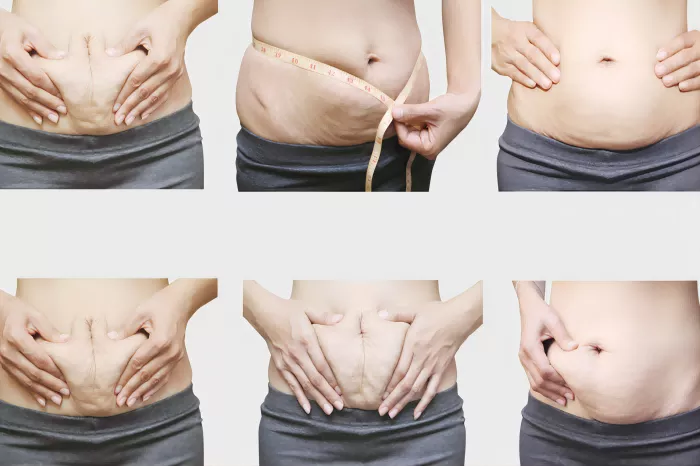Many women wonder whether weight loss becomes easier once they stop breastfeeding. After all, breastfeeding is known to burn extra calories and aid in postpartum weight loss. However, the reality is more nuanced. In this article, we’ll explore the factors that influence weight loss after stopping breastfeeding and provide insights into what to expect during this transition period.
In short, weight loss after stopping breastfeeding can vary from person to person and is influenced by a combination of factors, including diet, exercise, metabolism, hormonal changes, and lifestyle habits. While some women may find it easier to lose weight after weaning, others may experience challenges due to changes in appetite, metabolism, and lifestyle. It’s essential to approach post-breastfeeding weight loss with patience, realistic expectations, and a focus on overall health and well-being.
Factors Influencing Weight Loss After Stopping Breastfeeding
Metabolic Changes: Breastfeeding can increase metabolism and calorie expenditure, making it easier to lose weight during this time. However, once breastfeeding ceases, metabolic rate may decrease slightly, which could impact weight loss efforts.
Changes in Appetite: Breastfeeding can affect appetite and hunger levels, with some women experiencing increased hunger while nursing. After weaning, appetite may normalize, making it easier to stick to a calorie-controlled diet. However, for some women, appetite may remain elevated or fluctuate due to hormonal changes and emotional factors.
Hormonal Adjustments: Hormonal changes occur throughout the postpartum period and can influence weight loss. After stopping breastfeeding, hormone levels may fluctuate as the body adjusts to the cessation of lactation. These hormonal shifts can impact metabolism, appetite regulation, and fat storage, potentially affecting weight loss efforts.
Diet and Lifestyle Habits: Diet and lifestyle habits play a significant role in post-breastfeeding weight loss. Women who maintain healthy eating habits and engage in regular physical activity are more likely to achieve and sustain weight loss. However, if unhealthy eating patterns or sedentary behaviors persist after weaning, weight loss may be more challenging.
Stress and Emotional Factors: The post-weaning period can be emotionally challenging for some women, as they adjust to the changes in their bodies and the end of the breastfeeding relationship with their child. Stress and emotional eating can impact food choices and hinder weight loss efforts. Practicing stress management techniques and seeking support from loved ones can help mitigate these challenges.
Strategies for Successful Weight Loss After Stopping Breastfeeding
Focus on Nutrition: Pay attention to portion sizes, choose nutrient-dense foods, and prioritize fruits, vegetables, lean proteins, whole grains, and healthy fats. Avoid highly processed foods, sugary snacks, and excessive calorie consumption.
Stay Active: Incorporate regular physical activity into your routine, aiming for a combination of cardiovascular exercise, strength training, and flexibility exercises. Find activities you enjoy and make exercise a priority for both physical and mental well-being.
Monitor Portions: Be mindful of portion sizes and avoid mindless eating. Pay attention to hunger and fullness cues, and stop eating when you feel satisfied rather than stuffed. Practice mindful eating techniques to enhance awareness of food choices and eating behaviors.
Stay Hydrated: Drink plenty of water throughout the day to stay hydrated and support metabolism. Limit sugary beverages and alcohol, which can contribute excess calories and hinder weight loss efforts.
Get Adequate Sleep: Prioritize sleep and aim for 7-9 hours of quality sleep per night. Lack of sleep can disrupt hormone levels, increase cravings for unhealthy foods, and impact weight loss efforts.
Seek Support: Surround yourself with a supportive network of friends, family, or a support group who can offer encouragement, accountability, and practical assistance as you navigate post-breastfeeding weight loss.
Be Patient and Kind to Yourself: Remember that weight loss takes time and effort, and progress may be slow and non-linear. Focus on making small, sustainable changes to your lifestyle and celebrate progress along the way, regardless of the number on the scale.
Conclusion
Weight loss after stopping breastfeeding is influenced by a variety of factors, including metabolic changes, appetite regulation, hormonal adjustments, diet, lifestyle habits, stress, and emotional factors. While some women may find it easier to lose weight after weaning due to changes in appetite and metabolism, others may experience challenges related to hormonal fluctuations and emotional adjustments. It’s essential to approach post-breastfeeding weight loss with patience, realistic expectations, and a focus on overall health and well-being. By prioritizing nutritious eating, regular physical activity, adequate sleep, stress management, and seeking support when needed, women can achieve their weight loss goals and maintain a healthy lifestyle after stopping breastfeeding.
Related Topics:
Postpartum Fitness: When and How to Safely Resume Exercise After Giving Birth
Postpartum Fitness: A Comprehensive Guide to Safely Resuming Exercise After Giving Birth


